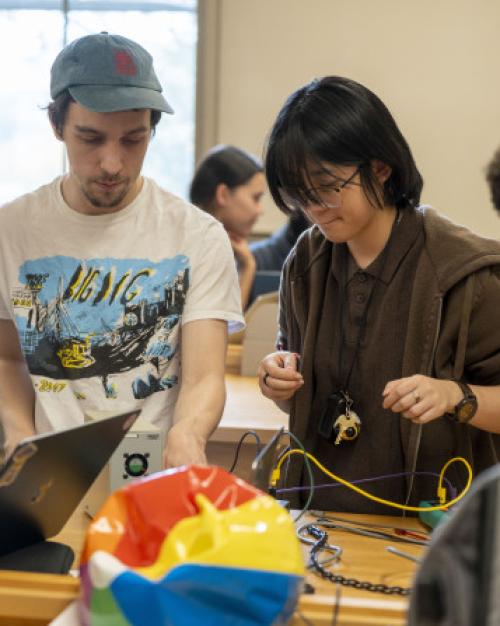Maren Vitousek, assistant professor of ecology and evolutionary biology, has received a two-year, $500,000 Defense Advanced Research Projects Agency (DARPA) Young Faculty Award to study links between stress, social connectedness, health and future performance. The DARPA Young Faculty Award program provides funding, mentoring and industry and Department of Defense contacts to awardees early in their careers.
Human experience – and research in other organisms – has long suggested that brief stressors can have long-lasting effects on health and performance. At the same time, social connectedness has emerged as a key predictor of how well individuals cope with stress.
“But while social connectedness strongly predicts stress resilience, we don’t yet know whether or how social interactions change the biology of individuals that experience them, in ways that affect how they cope with stress,” Vitousek said. She plans to take an innovative approach to answer these questions.
In laboratory environments, it is often difficult to reproduce or manipulate real-world social networks or to determine their effects on performance, health and survival. Vitousek and colleagues will combine fieldwork in a nest-box breeding population of individually tagged tree swallows with state-of-the-art laboratory-based analyses of biological state and performance.
By studying free-living birds, this work will address how specific socially-induced changes in biological state predict health, performance and survival under natural, real-world conditions. An important advantage of using tree swallows is that social connections can be manipulated by changing feather color. The group will also employ noninvasive hormone manipulation and experimental exposure to stressors to test how social connections influence stress resilience.
The researchers will use this model to test whether the social environment changes an individual’s epigenetic code, neuroendocrine function and gut microbial composition; whether the social environment during or after stressor exposure alters the biological response to stressors; and whether the specific combination of mechanistic changes induced by social interactions predict how individuals will cope with future challenges.
The work could have broad implications for biological research, from the molecular mechanisms of stress resilience to the role of stress in shaping population distributions. In terms of human health, the work could help researchers develop biomarkers of social connectedness or stress resistance, or even treatments designed to mimic or reverse these changes.
This article was originally published in the Cornell Chronicle.





